Dragon in Ambush
Dragon in Ambush
The Art of War in the Poems of
Mao Zedong
Jeremy Ingalls
Compiled and edited by
Allen Wittenborn
LEXINGTON BOOKS
Lanham Boulder New York Toronto Plymouth, UK
Published by Lexington Books
A wholly owned subsidiary of The Rowman & Littlefield Publishing Group, Inc.
4501 Forbes Boulevard, Suite 200, Lanham, Maryland 20706
www.rowman.com
10 Thornbury Road, Plymouth PL6 7PP, United Kingdom
Copyright 2013 by Lexington Books
All rights reserved. No part of this book may be reproduced in any form or by any electronic or mechanical means, including information storage and retrieval systems, without written permission from the publisher, except by a reviewer who may quote passages in a review.
British Library Cataloguing in Publication Information Available
Library of Congress Cataloging-in-Publication Data
Ingalls, Jeremy, 1911-2000.
Dragon in ambush : the art of war in the poems of Mao Zedong / Jeremy Ingalls ; compiled and edited by Allen Wittenborn.
pages cm
Includes bibliographical references and index.
ISBN 978-0-7391-7782-2 (cloth : alk. paper) -- ISBN 978-0-7391-7783-9 (electronic)
1. Mao, Zedong, 1893-1976--Criticism and interpretation. 2. Chinese poetry--20th century--History and criticism. 3. War in literature. I. Wittenborn, Allen John. II. Title.
PL2785.O3Z7536 2013
895.1'15--dc23
2013003872
 TM The paper used in this publication meets the minimum requirements of American National Standard for Information Sciences Permanence of Paper for Printed Library Materials, ANSI/NISO Z39.48-1992.
TM The paper used in this publication meets the minimum requirements of American National Standard for Information Sciences Permanence of Paper for Printed Library Materials, ANSI/NISO Z39.48-1992.
Printed in the United States of America
For Moe
List of Abbreviations
CCP | Chinese Communist Party |
CSR | Chinese Soviet Republic |
CPR | Chinese Peoples Republic |
FCW | Free China Weekly (Taiwan) |
GMD | Guomindang (Nationalist Party Taiwan) |
IWWP | International Whos Who in Poetry |
KMT | Kuomintang (Nationalist Party Taiwan) |
PLA | Peoples Liberation Army |
PRC | Peoples Republic of China |
ROC | Republic of China (Taiwan) |
USSR | Union of Soviet Socialist Republic |
Preface
DragoninAmbush:The Art of War in the Poems of Mao Zedong by Dr. Jeremy Ingalls is a critique and new translation of the first twenty of Mao Zedongs published poems.
In her examination and translation of Maos poems, Dr. Ingalls focuses not on their poetics but rather on analyzing how Mao employed the poems as lessons and guidelines for those sufficiently conversant in Chinese classical literature to read between the lines for their message. Prof. Ingalls argues that Mao intended to convey to his enlightened readers, a very small number to be sure, his goal of becoming Chinas yiren, , one man, that is, de facto emperor of China. More important, this study illustrates how Mao sought, through his poetry, to affirm Chinas future role as not only a world power among others, but the global hegemon above all others. When Mao Zedong announced from Tiananmen Square on October 1, that China had stood up, he was not simply proclaiming a new and independent China, free of colonial subjugation. China, Mao implied, would rise to stand over all competitors.
That is, Maos overall verse-sequence illumines his ultimate strategic goals:
his concentration upon securing and exercising autocratic power;
his intent to induce unnamed but hoped-for successors to learn from him, through his poems, the inner subtleties of a sustained autocracy; and
his design for effecting conjunction of autocratic rule within China with the emergence of China as the dominant force in world affairs.
Another conclusion Dr. Ingalls draws from her research is to downplay the significance of Marxism-Leninism in the Thought of Mao Zedong. She shows that throughout his career, Mao regarded Marxism-Leninism as a political convenience but not a doctrine permanently essential to his master plan. Just as Mao used Chiang Kai-sheks Nationalists and Josef Stalins Soviet Union as means to further his own political ambitions, so did Mao manipulate Marxist-Leninist ideology to hoodwink and attract, at home and abroad, professional revolutionaries to help do his bidding. Maos aims express, in their worldviews, an entirely Chinese tradition. In his poems, says Dr. Ingalls, Maos dialectics, his materialism, and his authoritarianism all take their points of reference from within the Chinese cultural order.
In this regard, Dr. Ingalls argues it is essential to recognize that, through his poems, Mao is not only recording his own practice as a master-strategist but, among juniors equipped by temperament and intellect to emulate him, intending and expecting to instruct them in aspects of his grand strategy never fully mentioned in his prose. Maos prose was primarily for public effect. By contrast, his poems were intended to serve as a manual for his successors on those subtle phases of his grand strategy that he does not mention in his prose writing. Any biographer or student of Mao Zedong who either ignores or overlooks his poetry misses the essential point and hence provides only a distorted and incomplete view of Mao.
Despite her critical analysis of Maos motives and intent, Dr. Ingalls remains convinced of his poetic brilliance and literary genius. She sees Maos poem 18, Kunlun, as a superior literary invention, very likely the most rhetorically elegant authoritarian manifesto, along with his poem 20, Snow, in world literature. As literary creations they are beyond question masterpieces in their genre.
The crux of DragoninAmbush, and why it is unique among other studies of the Thought of Mao Zedong, whether through his prose or verse, lies in her focus on the symbolism in the poems. In other words, the poems are, in Maos use of them as a means of communication, meaningless on their surface. But in the substance of the poems, no image, however seemingly commonplace, is ever employed for merely lyrical or prosaic description. Every image functions as a factor in an entirely political calculus. According to Dr. Ingalls,
When Mao mentions streams or mountains, suns or moons, clouds or winds or icicles, horses, elephants, snakes, tigers, leopards or bears, specifies kinds of trees or birds or fish, flies, brooms, mats or bridges, these and all his other images have, as their primary function, neither happenstance descriptions nor whimsical metaphor. They all have politically symbolic functions in Maos algebra of versified political discourse.
Dr. Ingalls further reveals that Maos use of illusions, wordplays, and images is systematic, never erratic or arbitrary. She points out that this is not unusual in Chinese literary culture. This indirect and subtle type of reasoning set out in intricately associated symbols was not invented by Mao Zedong. Maos use of symbolism is a long, ongoing practice among Chinese intellectuals and literati. Maos verse practice in this regard reflects habits of mind that were conditioned from boyhood by patterns of associative thought common to Chinese classical texts, and which reached its most intricate elaboration in such texts as that of the
Next page
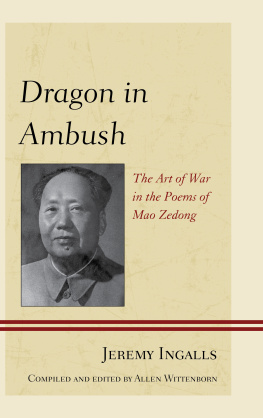

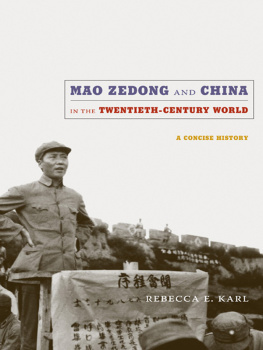
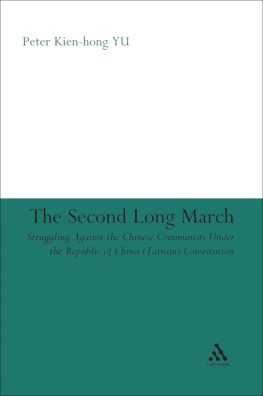
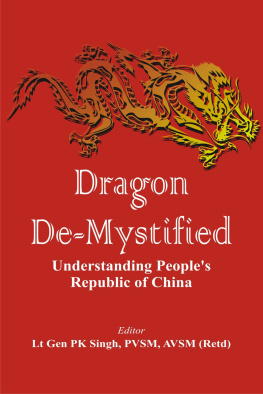
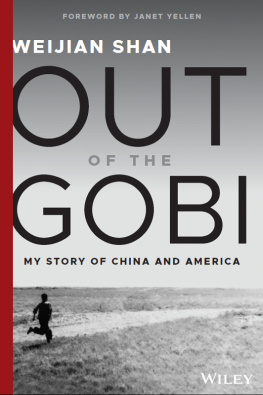
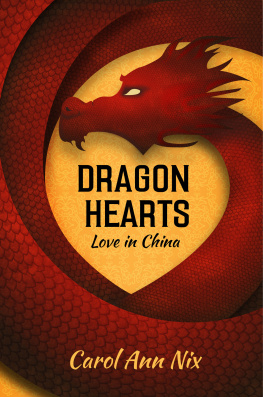
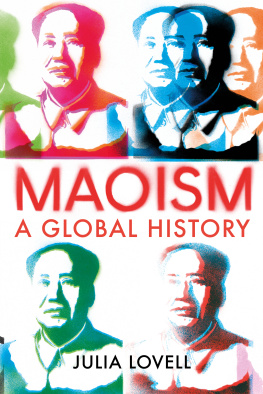
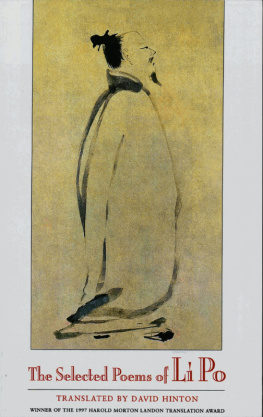
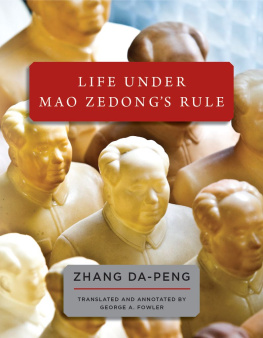
 TM The paper used in this publication meets the minimum requirements of American National Standard for Information Sciences Permanence of Paper for Printed Library Materials, ANSI/NISO Z39.48-1992.
TM The paper used in this publication meets the minimum requirements of American National Standard for Information Sciences Permanence of Paper for Printed Library Materials, ANSI/NISO Z39.48-1992.